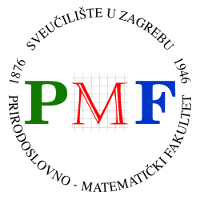Translational Genomics
Teachers: dr. Rosa Karlić, assistant professor, dr. Kristian Vlahoviček, professor
Semester: third
ECTS: 4
Required course
Introducing students to translational research in genomics and the methods used within those studies.
After the completion of this course, students are expected to be able to:
- Use freely available databases of medical data and data obtained through high-throughput trials, understand the different types and formats of data, and integrate data.
- Use computational and statistical methods in conducting research into infectious, hereditary and complex diseases and tumour diseases.
- Use different types of ontologies for the purpose of analysing gene enrrichment.
- Understand methods for analysing text and using literature databases in translational research.
- Introduction to Translational Research.
- Electronic health information. Biobanks and health databases. Ethical and security issues.
- Databases obtained from high-throughput experiments. Integration of different types of data.
- Computer genomics of infectious diseases. Diagnosis and characterization of infectious diseases by high-throughput methods. Modelling infectious diseases.
- Computational genomics of hereditary diseases.
- Computational genomics of complex diseases. Whole-genome association studies. Analysis of networks and pathways involved in the emergence of complex diseases.
- Tumour genomics. Large-scale projects aimed at characterizing different types of tumours. Determination of mutations based on data generated by next-generation sequencing.
- Gene ontologies and disease ontologies. Representation analysis.
- Computational methods for determining priority genes involved in the onset of disease.
- Computational Pharmacogenomics. Drug discovery and drug resistance genomics.
- Text analysis in translational genomics. Literature databases. Natural language processing.
- Personalized medicine. Patient stratification methods


